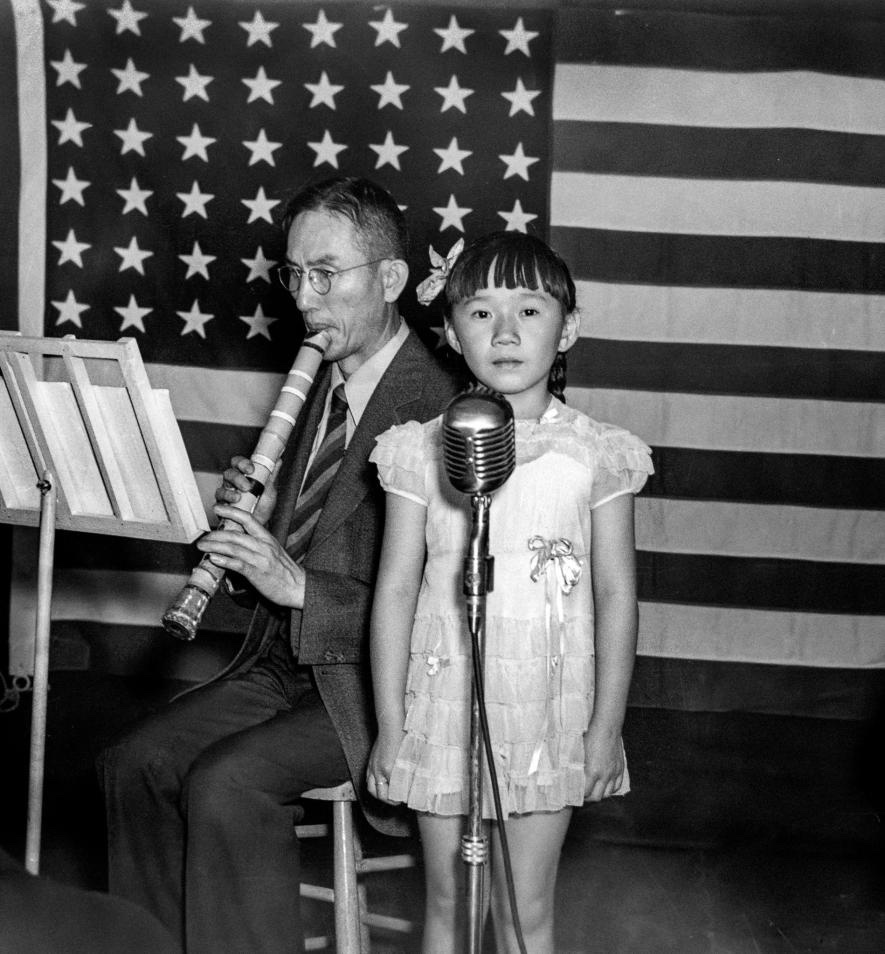A look back through the history of Japanese internment
URI Music department honored the history of Japanese Americans during World War II. PHOTO CREDIT: National Archives
On Saturday, March 25, the University of Rhode Island’s Music department held an event to honor music from Japanese encampments during World War II entitled, “Making of Music Behind Barbed Wires.”
Professor of music Manabu Takasawa organized the event which featured Japanese folk music performed by himself and singer Yuriko Nonaka.
Takasawa was inspired by the 40 year anniversary of his life in America.
“It suddenly occurred to me that I am more or less Japanese American at this point,” said Takasawa, despite him still being a Japanese citizen.
Especially after the turmoil during the pandemic with Asian-Americans being attacked, Takasawa had begun to think more about the stories and experiences of immigrants, specifically looking into the history of Japanese immigrants when they had begun to move to the west coast of America in the 19th century.
Takasawa set out to combine the music he played with the story he wanted to tell.
The event began with a beautifully sung piece performed by Nonaka and accompanied by Takasawa on piano.
After the song was played, Takasawa shared a video of his friend Masa Kitagawa Fukui, a Japanese-American born and raised in San Francisco.
Fukui shared her story of being just 16-years-old when the attack on Pearl Harbor occurred which changed the trajectory of her life.
Fukui and her family were taken to San Anita Assembly center, located south of San Francisco. Assembly centers were assigned housing while the government more permanent camps.
The performances continued in Japanese. The songs felt like ballads that were easy to feel the history and community behind each note sung.
Continuing to switch between storytelling and song, the event lasted just around an hour.
Graduate student of classical music from Japan, Moe Takamatsu attended the event. Takamatsu said she appreciated the traditional Japanese music.
“Music always has the space for anyone to feel safe or free,” Takamatsu said.
She noted while the music and the stories were tragic, she was glad that this performance was able to create a safe space for these stories to be told.
“Music, overall, speaks more than words,” Takamatsu said. “People were going through these wars and they were behind bars and they had limits for everything, but to be able to play an instrument… they could express their emotion and their state of mind, and that in a way freed themselves.”
According to Takasawa, from the research he had done, and stories he had heard there was a great amount of resilience that came from Japanese Americans when they were put into these encampments.
“They didn’t even know how long they were going to be put in. But somehow, they lived their lives and somehow survived,” said Takasawa.
Takasawa noted that to honor history like this is so important. By recognizing the past we can learn from it, and hopefully not make the same mistakes, said Takasawa.
International students from all over the world find a home at the University of Rhode Island, Takasawa said, by recognizing history and culture on campus helps to unite the University. The full live stream can be found on URI Music’s Youtube under University Artist Series – Making Music Behind Barbed Wires.




